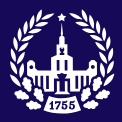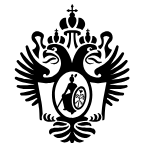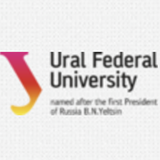Introduction to Northern (Arctic) Federal University
The Northern (Arctic) Federal University, also known as Lomonosov Northern (Arctic) Federal University, is located in Arkhangelsk, Russia. It is the northernmost federal university in Russia and one of the important education and scientific research centers in the Arctic region. It has trained a large number of professionals for the development and research of the Arctic region.
Overview
Student size: about 15,000 students, including more than 1,000 international students from 50 countries.
Faculty: There are many excellent teachers, but no specific data such as the exact number of teachers and the proportion of teachers with senior professional titles have been found.
History and Establishment
In 2010, according to the decree of Dmitry Medvedev, President of the Russian Federation, it was established on the basis of Arkhangelsk State Technical University. On July 12, 2011, it merged and reorganized with Lomonosov Pomorsky State University, Emperor Peter I of Arkhangelsk Forest Engineering College, and Severodvinsk Technical College, and was renamed Lomonosov Northern (Arctic) Federal University.
School Strength
Teaching Achievements: It provides undergraduate, master's and doctoral degree courses at multiple levels, covering natural sciences, humanities, engineering, economics, law and other fields. Graduates have outstanding performance in related industries in Russia and internationally, and have provided a large number of professional talents for the Arctic region and other places.
Scientific Research Strength: As an important institution for Arctic research, the school has carried out extensive and in-depth research in natural sciences, social sciences, engineering technology and other aspects in the Arctic region, with 50 Multiple scientific centers and laboratories have undertaken a large number of national and international scientific research projects, and their scientific research results are of great significance to the sustainable development and resource development of the Arctic region.
International Cooperation: The school is a member of the Arctic University and has established cooperative relations with universities and scientific research institutions in many countries, carrying out student exchange, joint research and other projects, and actively promoting international cooperation and exchanges in the Arctic region.
Nature of the institution
Public federal university.
Educational philosophy
Focus on cultivating students' innovation ability, practical ability and interdisciplinary literacy, emphasizing the combination of theory and practice, and encouraging students to participate in scientific research projects and practical activities to adapt to the complex and changing environment and social and economic development needs of the Arctic region, and cultivate professionals with global vision and social responsibility for the development of the Arctic region.
Key laboratories and disciplines
Key laboratories: The school has a number of infrastructure and scientific research institutions, including the shared equipment center "Arktika", the innovative technology center "Arctic Oil and Gas Laboratory Research", the Arctic Remote Sensing Center, the Forest Monitoring Center, and plans to open an innovative technology center "Modern Processing Technology of Northern Biological Resources" and a patent and intellectual property protection office.
Key disciplines: Arctic region research, Arctic marine ecology, Arctic security, natural sciences, humanities and social sciences, engineering technology and other disciplines are the school's key development disciplines, and have significant advantages in research and education in Arctic-related fields.
Faculty
The school has the following 7 colleges of higher learning:
College of Social Sciences, Humanities and International Exchange
College of Natural Sciences and Technology
College of Information Technology and Automation Systems
College of Economics, Management and Law
College of Engineering
College of Power Engineering, Oil and Gas
College of Psychology, Education and Sports
Ranking
Ranked 251-300 in the 2022 QS Emerging Europe and Central Asia rankings Name.
Expenses
Tuition fees vary by major and degree level. No clear tuition fee standards for each major have been found. Generally speaking, the annual tuition fee for undergraduate majors is about US$2,000-3,000, the annual tuition fee for master's majors is about US$3,000-4,000, and the annual tuition fee for doctoral majors is about US$4,000-5,000.
Campus
Teaching facilities: The campus has modern teaching buildings, laboratories, libraries and other teaching facilities, providing students with good learning conditions.
Living facilities: The school has 14 dormitories and is also equipped with sports facilities, providing students with a comfortable living environment.
-

Peter the Great St.Petersburg Polytechnic University
-

Moscow State University M. V. Lomonosov
-

Bauman Moscow State Technical University
-

St. Petersburg State University
-

Tomsk State University
-

Peoples' Friendship University of Russia
-

Don State Technical University
-

Ural Federal University
-

Moscow Institute of Physics and Technology
-

Kazan Federal University
-

Mesoamerican University
-

Istmo University
-

Mariano Galvez University of Guatemala
-

Regional University of Guatemala
-

Galileo University
-

Francisco Marroquín University
-

Rafael Landívar University
-

University of the Valley of Guatemala
-

University of San Carlos of Guatemala
-

Technological Institute of Tlaxcala Plateau
-

Golfo University
-

Technological University of South Sonora
-

Technological University of Huejotzingo
-

Tizimín Institute of Technology
-

Chilpancingo Institute of Technology

